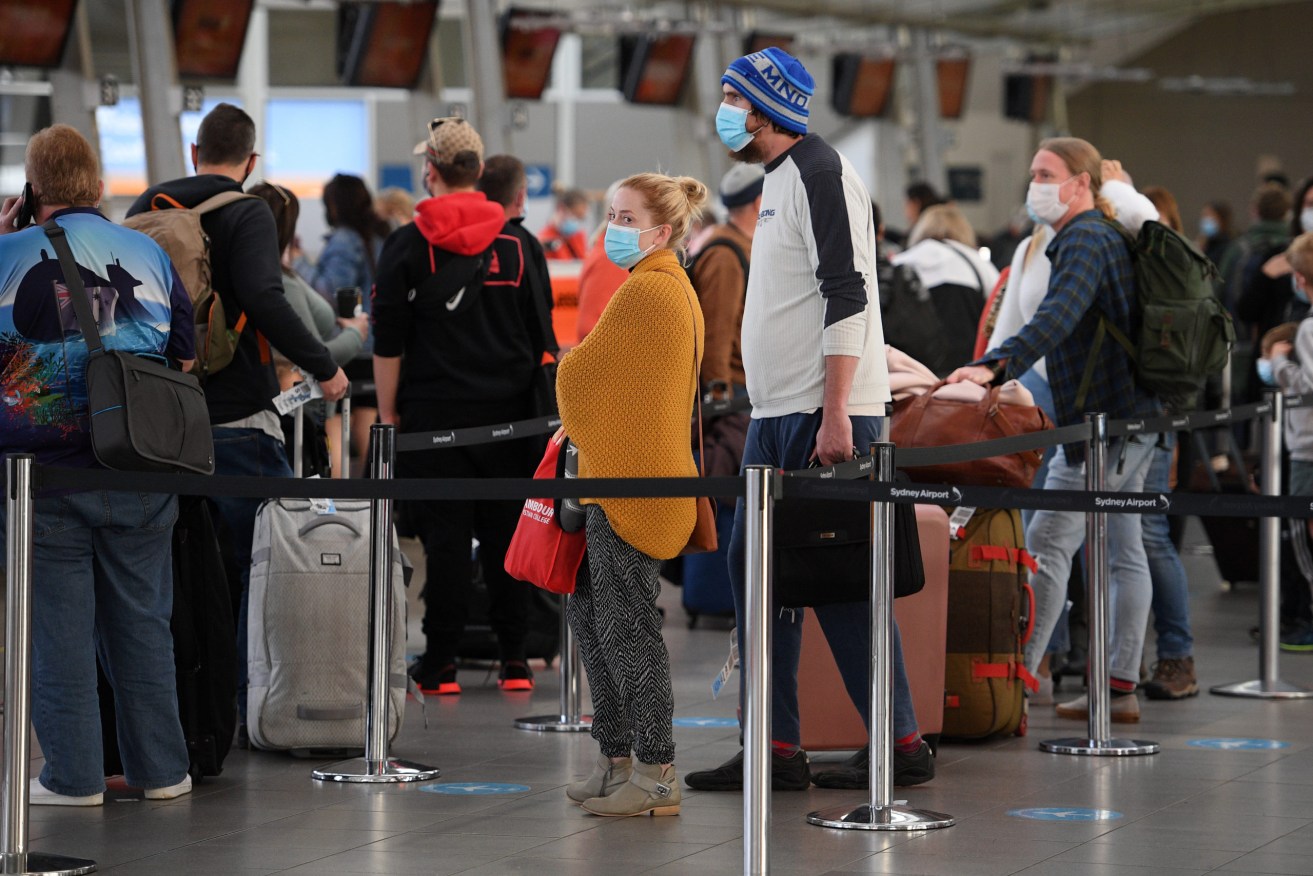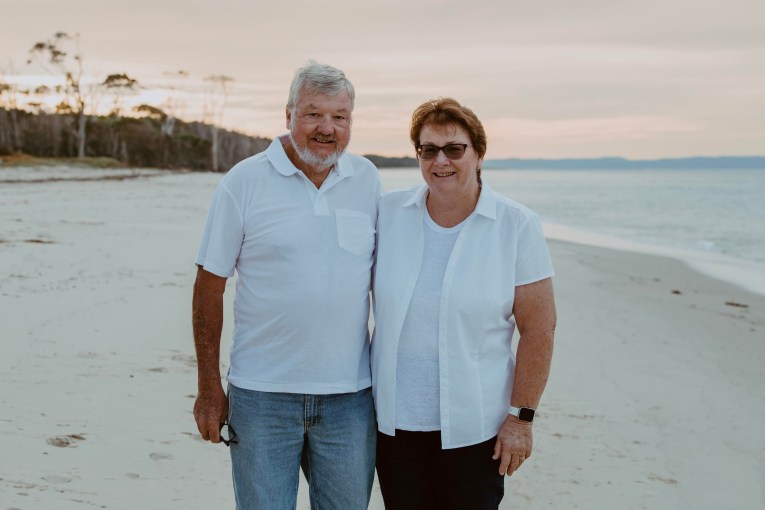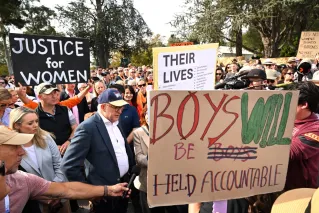‘Willing to adjust’: Minister hints at cut in returned traveller cap to relieve states
The cap on international travellers coming into Australia looks set to be slashed as the country deals with widespread outbreaks of coronavirus.

(AAP Image/Dan Himbrechts)
Ahead of the next national cabinet meeting on Friday, Finance Minister Simon Birmingham has signalled the federal government is open to reducing caps.
Queensland, Victoria and Western Australia have spent the week calling for a drastic cut to the weekly cap.
Premier Annastacia Palaszczuk said the number of arrivals from overseas had created a “pressure cooker” which was making the state more vulnerable to COVID outbreaks.
And Victorian Premier Daniel Andrews wants to reduce the returned traveller cap by between 50 and 80 per cent for the next three to four months.
“It won’t be easy to lock some people out but locking some people out is much better than locking everybody down,” he told reporters in Melbourne on Thursday.
The federal government has so far pushed back against the proposal.
But Finance Minister Simon Birmingham struck a markedly different tone on Thursday as leaders prepared to debate the proposal at national cabinet.
“We’ve shown a willingness to adjust based on changed risk profiles and we’ll always look at that,” he said.
Birmingham cited the India travel ban and limits imposed at the start of the pandemic as examples of responsive restrictions.
Labor states also argue too many people are being granted exemptions to leave the country and come home again, putting the rest of the country at risk.
Palaszczuk repeated her claim Queensland is in a “pressure cooker situation” and would not be able to hold back the Delta variant without Commonwealth support.
“Our hotels were not built to contain it and obviously you’ve seen our hospitals were not built to contain it either,” Palaszczuk said.
More than 51,000 outbound travel exemptions have been approved since the start of this year.
But Australian Border Force commissioner Michael Outram points out 52,000 applications have been refused.
“So the idea we’re just letting people travel on a whim is actually fake,” he told ABC radio.
“We’re actually being really tough on this.”
More than 10,000 Australians have been approved to leave the country on compassionate or compelling grounds since the start of this year.
Another 27,000 have been allowed overseas for study or work, with the remainder of exemptions granted to people employed in critical industries.
On incoming travellers, the ABF rejected suggestions people were getting exemptions to holiday in Australia.
Labor home affairs spokeswoman Kristina Keneally claimed tourists and business travellers were being allowed to jump the queue ahead of more than 34,000 Australians stranded overseas.
Outram rubbished her claims.
He said 84 per cent of arrivals were returning Australians, permanent residents or their immediate family members.
The remaining 16 per cent were foreign nationals, with the carve-up following a consistent pattern for many months.
A federal-state spat over hotel quarantine arrangements will also spill into the national cabinet meeting.
Hotel quarantine breaches have been responsible for most of the outbreaks across Australia.
There have been 26 hotel quarantine leaks since the start of the pandemic, including six in June.
Outram hosed down suggestions halving the number of arrivals would lower the risk of outbreaks.
Just 0.6 per cent of international arrivals have been COVID-positive.
The volume of international travel has plunged to less than two per cent of pre-pandemic levels.
The federal government has blamed the states, arguing coronavirus outbreaks have not been exacerbated by the number of incoming travellers, but conditions in hotel quarantine.












